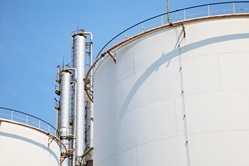
Publication
Navigating international trade and tariffs
Impacts of evolving trade regulations and compliance risks


Global | Publication | March 2025
On February 25, 2025, the Department of Energy (DOE) issued an Order Granting Request for Rehearing and Clarification and Modifying Order (Order 5233-A) (the Modified Order) clarifying that DOE will no longer consider ship-to-ship transfers of liquified natural gas (LNG) used as a fuel for marine vessels an “export” for the purposes of Section 3 the Natural Gas Act of 1938 (the NGA) when the receiving ship is located in US ports, US waters or international waters.1
However, DOE reaffirmed its position that LNG bunkering occurring in the territorial waters of a foreign country or foreign port will be considered “exports” for the purposes of the NGA.
This is a significant development for the US LNG market because the export of LNG is regulated by DOE under Section 3 of the NGA, requiring exporters to submit applications and wait for approval prior to conducting their activities. The DOE’s more narrow interpretation of “exports” set forth in the Modified Order could significantly reduce the regulatory burden placed on the use of LNG as a marine fuel and on the US LNG industry at large. Read our full article here.

Publication
Impacts of evolving trade regulations and compliance risks

Publication
Low carbon projects, especially those involving hydrogen and carbon capture and storage (CCS), play a crucial role in the journey towards global decarbonization.
Publication
As a general remark, Indonesia has not, at the date of preparing this summary, issued any regulation on hydrogen production, distribution and trade. It is expected that the upcoming New and Renewable Energy Law will provide a legal framework for the exploitation and utilisation of various new energy sources, including hydrogen.
Subscribe and stay up to date with the latest legal news, information and events . . .
© Norton Rose Fulbright LLP 2025